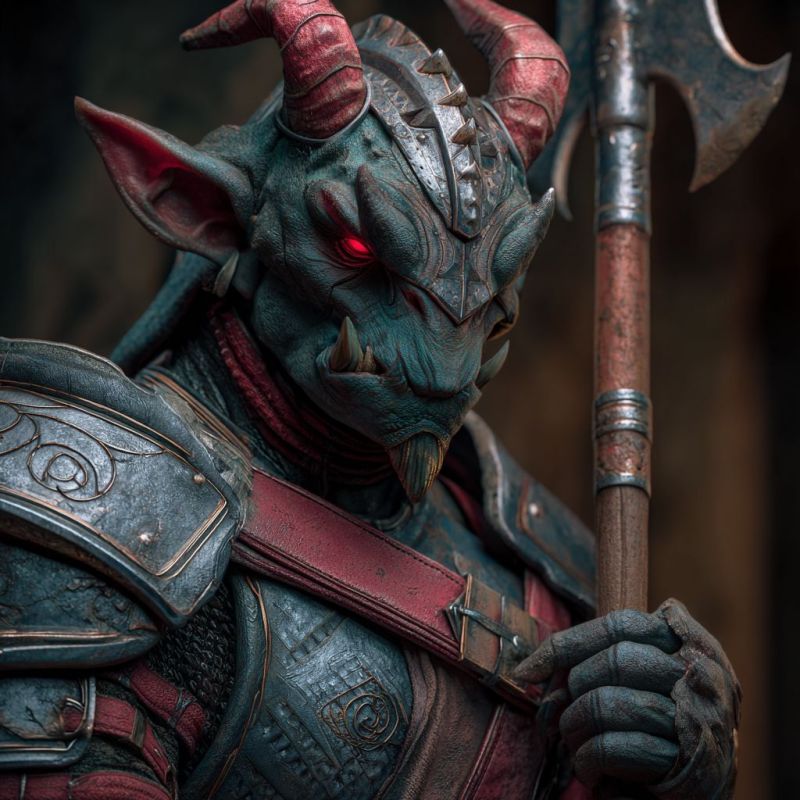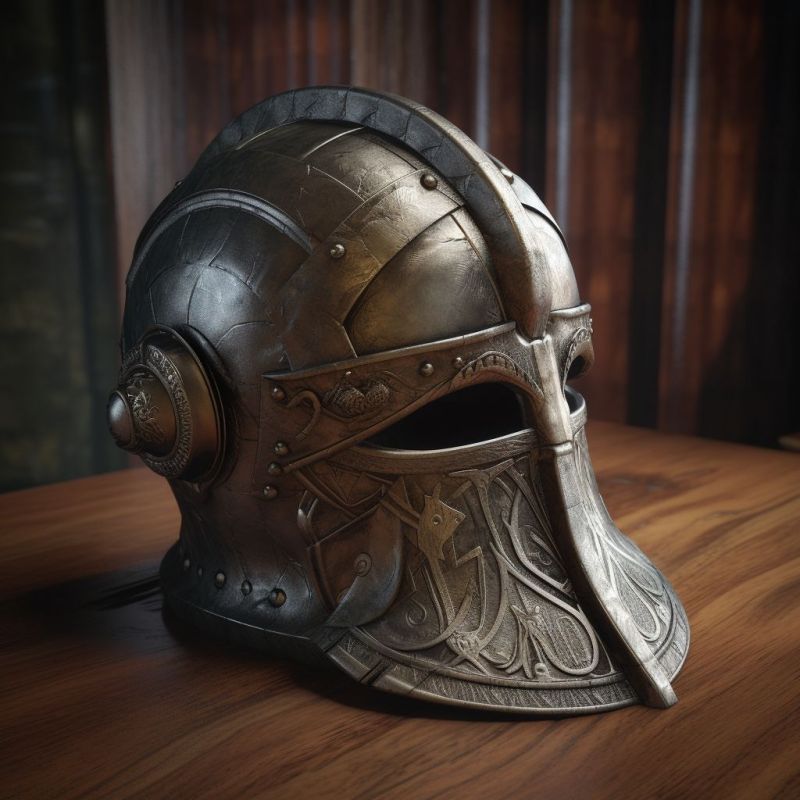
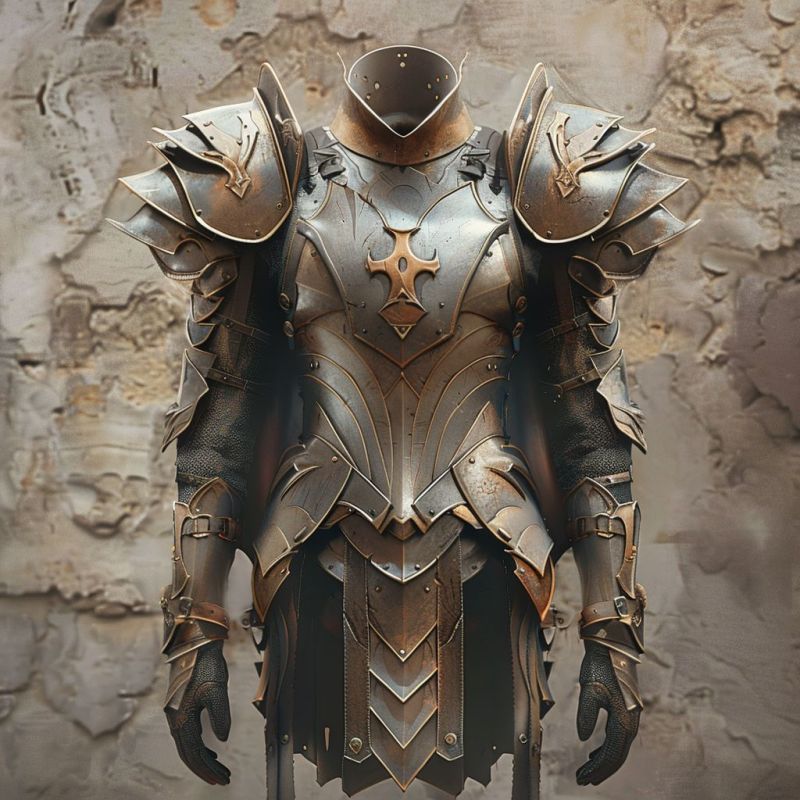
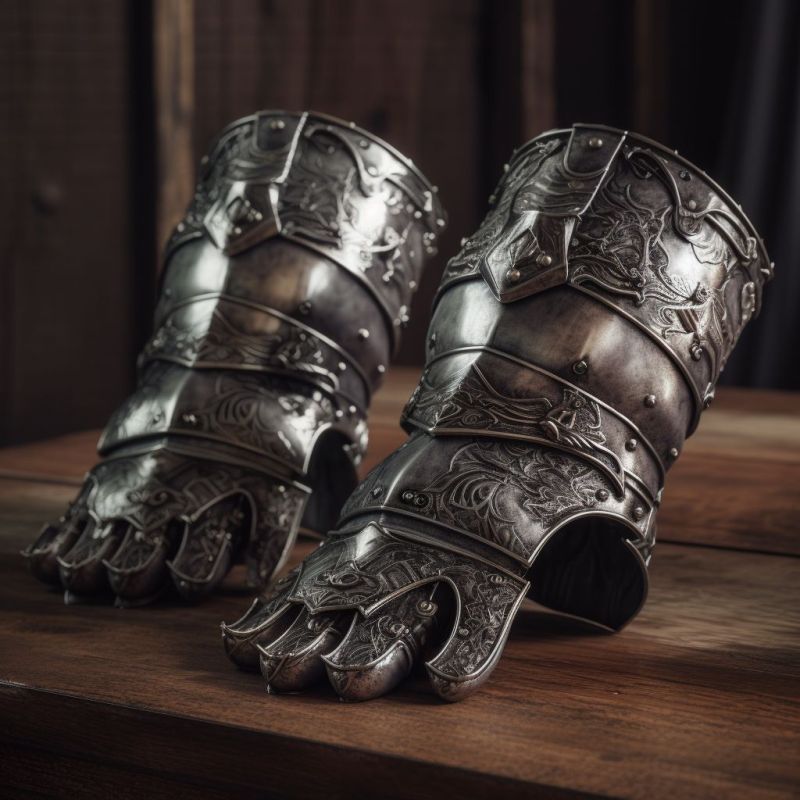
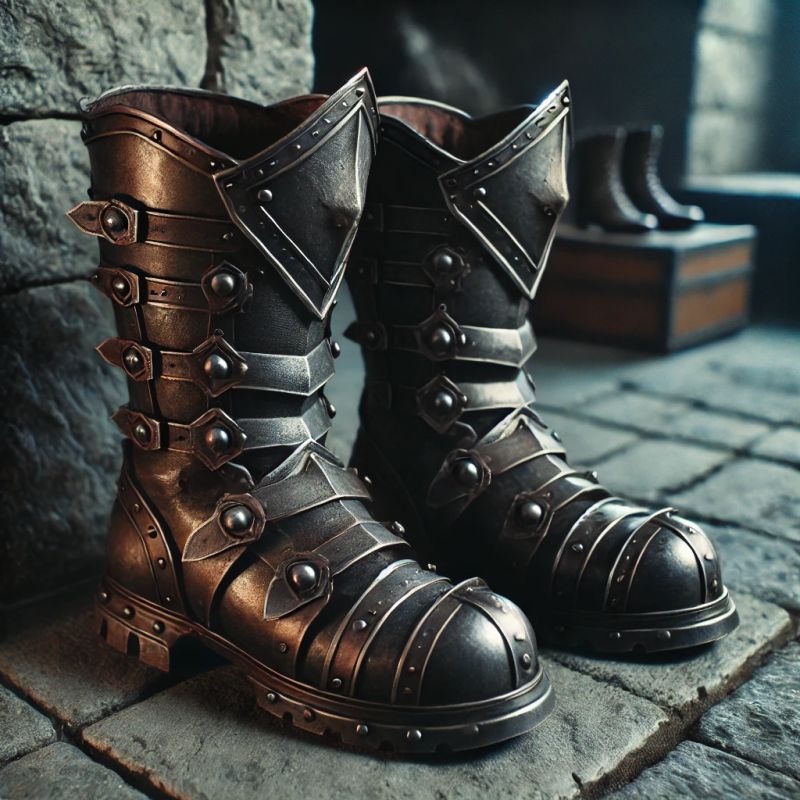
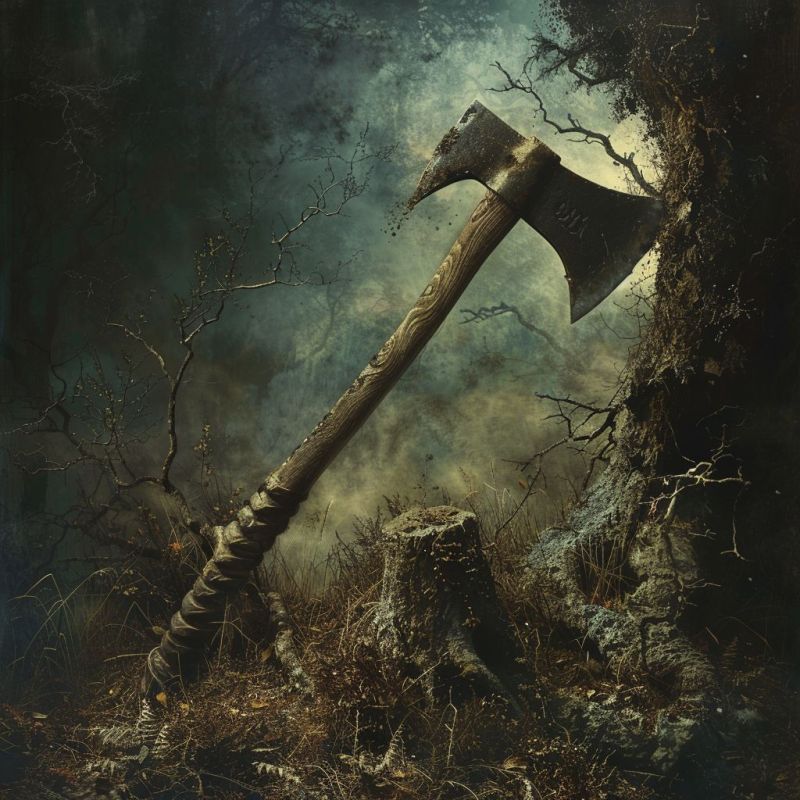

 Inventory Equipped:
Inventory Equipped:-
Boots, Iron8 gp
-
Gauntlets, Iron25 gp
-
Greataxe30 gp
-
Half Plate450 gp
-
Helmet40 gp
 Inventory Unequipped:
Inventory Unequipped:-
Controlled Slave Collar, Silver560 gp
-
Skull, Humanoid0.5 gp
 Quick Abilities:
Quick Abilities:-
Plate Training1000 gp

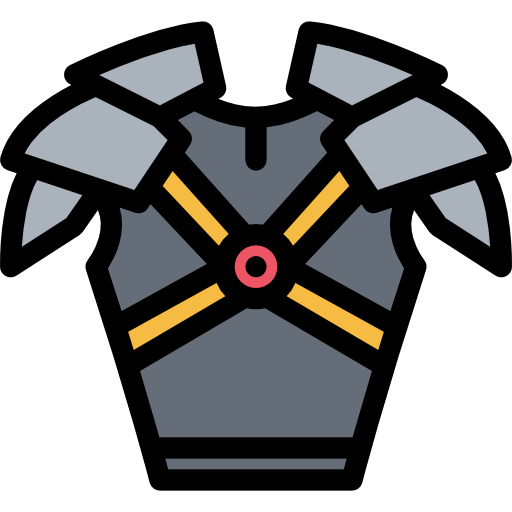
 Attack Abilities:
Attack Abilities:-
Burning Blade Strike1600 gp
-
Heavy Axe Swing1000 gp
-
Martial Advantage1600 gp
-
Cleave250 gp

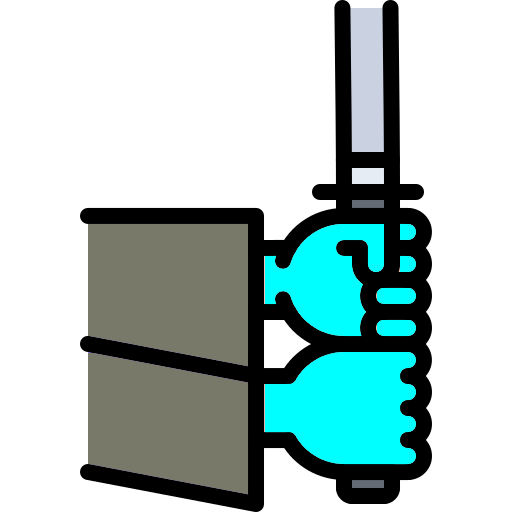
-
Heavy Swing500 gp


 Free Abilities:
Free Abilities:-
Fire Blood
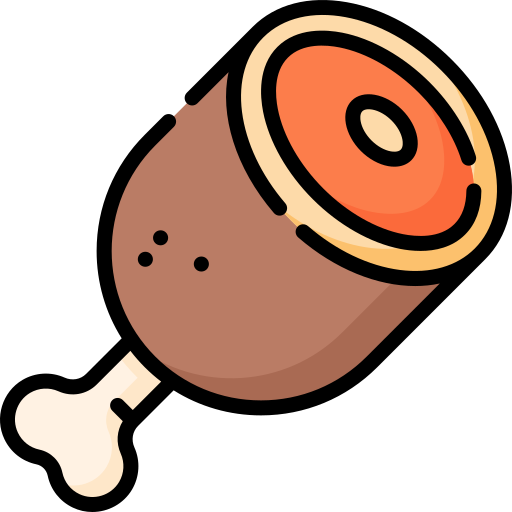 Monster Bits:
Monster Bits:-
12 Humanoid Blood0.15 gp
-
30 Animal Bone0.03 gp
-
20 Animal Fat0.5 gp
-
70 Animal Meat0.05 gp
-
10 Soft Skin0.05 gp
You spot the brute, a massive axe resting in his grip, rusted edge dark with stains. Skulls clatter at his belt, hollow eyes swinging as he fixes his gaze upon you.
Environments:
![]()
![]()
![]()
![]()
![]()
🦹♂️😈 Goblinoids: Mischief-Makers of Mayhem
Goblinoids, with goblins at their chaotic core, are Zin’s pint-sized purveyors of malevolence, their small frames brimming with cunning and cruelty. 🐀 Despite their diminutive stature, these mischievous fiends wield a knack for trickery and torment, turning forests, caves, and ruins into playgrounds of pandemonium. From gleeful ambushes to sadistic pranks, goblinoids embody chaotic malice, their laughter a harbinger of trouble for any who cross their path.
🎭 Goblin Shenanigans: Revels in Ruin
Goblins live for the thrill of outsmarting foes, erupting into wild celebrations when victory is theirs. 🥳 Their lairs echo with frenzied dances, cackling laughter, and the clatter of pilfered loot, a riotous display of goblin glee. Their love for wickedness shines in elaborate traps and infuriating pranks, from pitfall snares to rigged buckets of filth. GMs can bring this chaos to life, staging goblin revels as a backdrop to tense encounters or as a lure to draw players into a trap-laden lair.
👑 Leadership Hierarchy: Rule of the Cunning
Goblin society bows to strength or smarts, though loyalty is as fleeting as their attention spans. 🗡️ A goblin boss commands a single lair, surrounded by scheming underlings ready to betray at the first sign of weakness. Greater still, a goblin king or queen reigns over sprawling tribes across multiple dens, their rule a precarious balance of fear and cunning. Often, hobgoblin warlords or bugbear chiefs seize control, imposing order on the chaos. GMs can use this volatile hierarchy to spark intrigue, with players exploiting rivalries or facing a usurper’s wrath.
🕸️ Tricky Lairs: Mazes of Menace
Goblin lairs are deathtraps for the unwary, festooned with alarms—bells, tripwires, or chattering bones—that scream of intruders. 🏰 Narrow tunnels and bolt-holes, sized for goblin agility, thwart larger foes, letting goblins slip away or flank with ease. These subterranean mazes are rigged with cruel traps—spiked pits, collapsing ceilings, or swarms of stinging insects. GMs can design lairs as labyrinthine gauntlets, challenging players to navigate tight passages while dodging ambushes and snares.
🐺 Rat Keepers and Wolf Riders: Beasts of the Night
Goblins share a bond with creatures of shadow, raising rats as pets and sentinels, their squeaks sounding the alarm. 🐀 Wolves, tamed as mounts, transform goblins into daring raiders, their hit-and-run tactics sowing terror. Riding in packs, wolf-mounted goblins strike from darkness, their howls blending with lupine snarls. GMs can stage thrilling chases or battles, with goblin riders darting through forests or retreating to their trap-filled lairs.
⚔️ Combat Tactics: Cunning Over Strength
In battle, goblinoids rely on guile, striking from shadows with slings, shortbows, or jagged blades. 🏹 They use terrain—trees, cliffs, or tunnels—to outmaneuver foes, setting traps to cripple or confuse. Leaders rally their kin with shrill commands, boosting their chaotic ferocity. GMs can craft encounters as frenetic ambushes, with goblins vanishing into bolt-holes or unleashing swarms of rats to overwhelm intruders.
🧠 Motivations: Malice and Survival
Goblins revel in chaos, their pranks and raids driven by sadistic joy or a desperate need to survive. 😈 Some seek loot to appease their bosses, while others torment for the sheer thrill. A few dream of rising to kingly status, their ambition sparking reckless schemes. GMs can add depth by giving goblins personal stakes—a grudge against a local lord or a quest for a fabled treasure—making them more than mere nuisances.
🏞️ The Goblinoid Lair: Den of Deceptions
A goblinoid lair is a warren of filth and cunning, buried in caves, ruins, or tangled thickets. 🕳️ Stinking of refuse and littered with stolen goods, it buzzes with the chatter of rats and the clank of crude forges. Traps and hidden exits make it a nightmare to assault, while goblin sentries keep watch from precarious perches. GMs can craft lairs as chaotic puzzles, with players navigating a gauntlet of tricks to reach the heart of the goblin horde.
🗝️ Confronting Goblinoids: Outwitting the Wicked
Facing goblinoids demands vigilance and strategy, as their traps and ambushes punish the careless. ⚡ Heroes must counter their mobility with area attacks or bait their traps to exhaust their tricks. Diplomacy is risky—goblins may feign surrender only to strike from behind. GMs can create dynamic encounters, blending combat with chases through twisting tunnels or negotiations with a cunning boss.
🌌 Apex of Chaotic Malevolence
Goblinoids are Zin’s gleeful terrors, their small size belying a heart of relentless malice. 🦹♂️ From trap-laden lairs to wolf-back raids, they weave chaos into every corner they infest. Their laughter haunts the wilds, a challenge to heroes brave enough to face their cunning. Only the sharpest and most resilient can outsmart these mischief-makers, turning their wicked games into tales of triumph. 💚
The Birth of the Flameforged
Long ago, goblins were no more than scavengers—cowardly, wretched creatures that thrived in the shadows of greater civilizations. It was their desperation and envy that caught the eye of Nasten, Demon Lord of Cruelty and Conquest. He did not create them, but he twisted them.
Through rituals of blood and fire, Nasten poured his malice into chosen tribes of goblins, stretching their bones, swelling their muscle, and searing their minds with his hatred. What emerged were not goblins but Hobgoblins—a new breed bred for war. They were larger, stronger, and far crueler than their kin. Where goblins scurried in packs like vermin, Hobgoblins marched in ranks like soldiers.
The Demon’s Blessing, The Demon’s Spite
Nasten granted them the power to wield fire, shaping them into living instruments of terror. Yet in his twisted hierarchy of favored children, Hobgoblins found no place of honor. That position belonged to the Dark Dwarves, whom Nasten cherished as his chosen artisans of war and torment.
The Hobgoblins were left as expendable tools—useful but unloved. This rejection burned within them like the very fire Nasten had gifted. To prove themselves, they turned their wrath against all others, including the Dark Dwarves themselves. Their entire history became a contest of cruelty, as if sheer bloodshed might one day force Nasten to acknowledge them.
A Culture of Endless War
Hobgoblins are not merely soldiers—they are war incarnate. Every aspect of their existence is structured like an army:
- Hierarchy by Blood: Leadership is seized through duels to the death, and authority is constantly tested by challengers.
- No Rest, Only War: Peace is meaningless to them. Between campaigns, they train, sharpen their weapons, and torment captives to refine their cruelty.
- Enslavement as Sport: To them, slaves are not workers but trophies. The greater the suffering of their captives, the greater the glory of the conqueror.
To other races, Hobgoblin warbands are a storm of fire and iron, leaving only ash in their wake. Yet within their camps, this destruction is ritualized. Victories are celebrated with pyres of burning prisoners, their screams echoing as an offering to Nasten.
Eternal Rivals: The Dark Dwarves
The Hobgoblins’ greatest torment is their constant comparison to the Dark Dwarves. Both serve Nasten, yet only the dwarves are called his true children. While Hobgoblins burn villages to ash, the Dark Dwarves forge cruel weapons, engines of pain, and relics that delight their demon lord far more.
This rivalry has defined Hobgoblin culture. They raid deeper, burn brighter, and kill crueler—always pushing themselves to outdo their rivals. Clashes between Hobgoblin legions and Dark Dwarven warhosts are common, brutal, and rarely decisive, for neither side will relent in proving their superiority.
The Curse of Fire
Fire is both a gift and a curse for Hobgoblins. With it, they wield power far beyond mortal soldiers—able to set cities aflame with a single raid. Yet the flames mark them. The ember-glow in their eyes betrays their lineage, and the stench of smoke follows them always.
Many believe this was Nasten’s cruelest joke: to brand them forever as his tools, but never as his beloved. They are weapons, nothing more, and the fire that empowers them also ensures they can never hide, never belong, and never be free of their master’s shadow.
Legacy of Ash
Where Hobgoblins march, only ruin remains. Their campaigns carve scars across kingdoms, erasing cultures and histories in fire. Villages burned, castles toppled, forests reduced to smoking husks. Yet even in death, their victims serve a purpose—offered to the flames in hope that Nasten might, at last, look upon his forgotten children.
Generations of Hobgoblins have lived and died in this cycle of conquest, rejection, and rivalry. To outsiders, they are monsters. To themselves, they are warriors cursed to fight until Nasten either destroys them or finally grants them his love.
 Special Senses:
Special Senses:-
 Nightsight: +60
Nightsight: +60
 Free Abilities:
Free Abilities:-
Fire Blood
